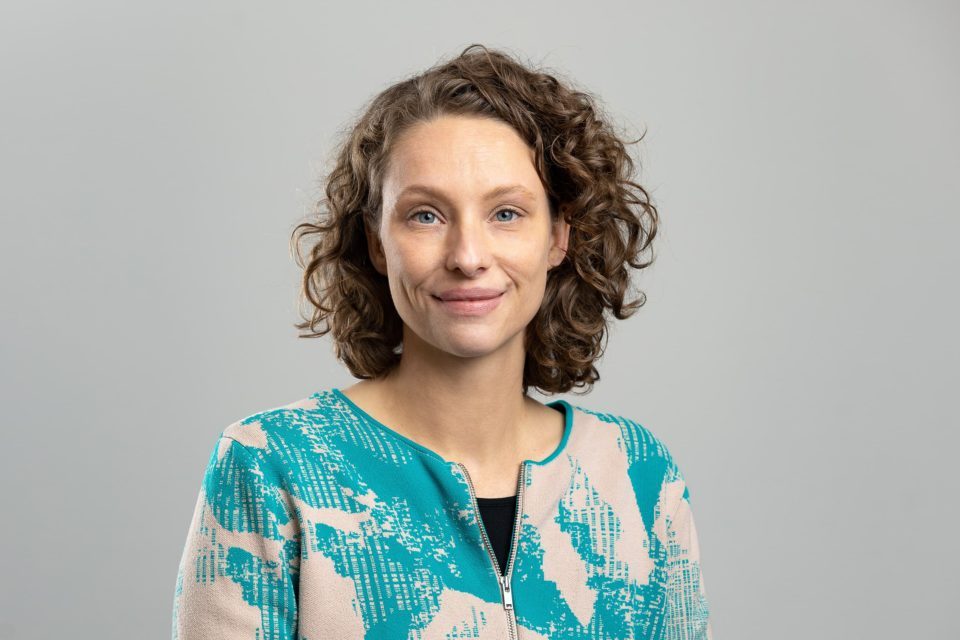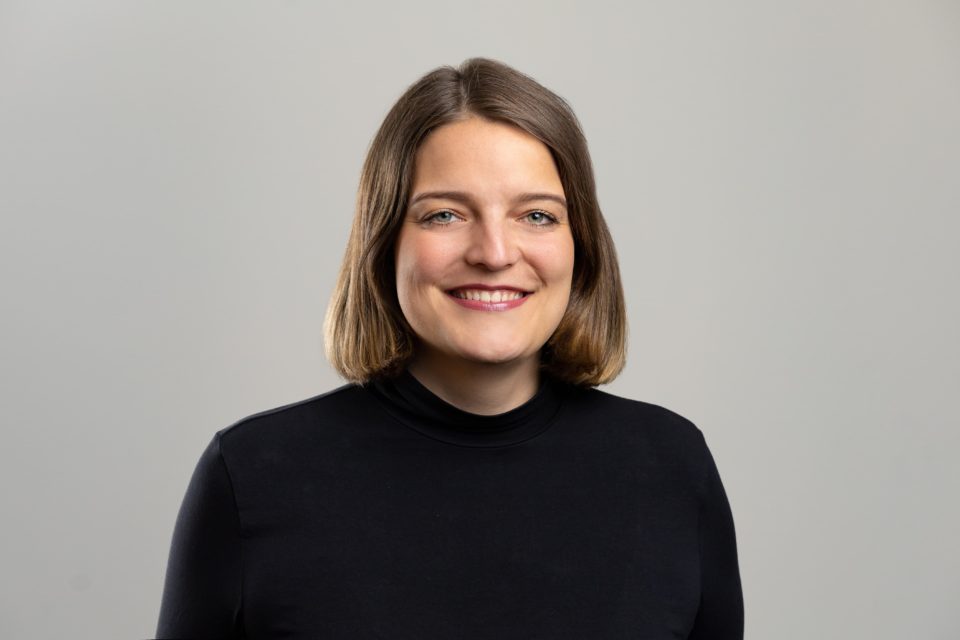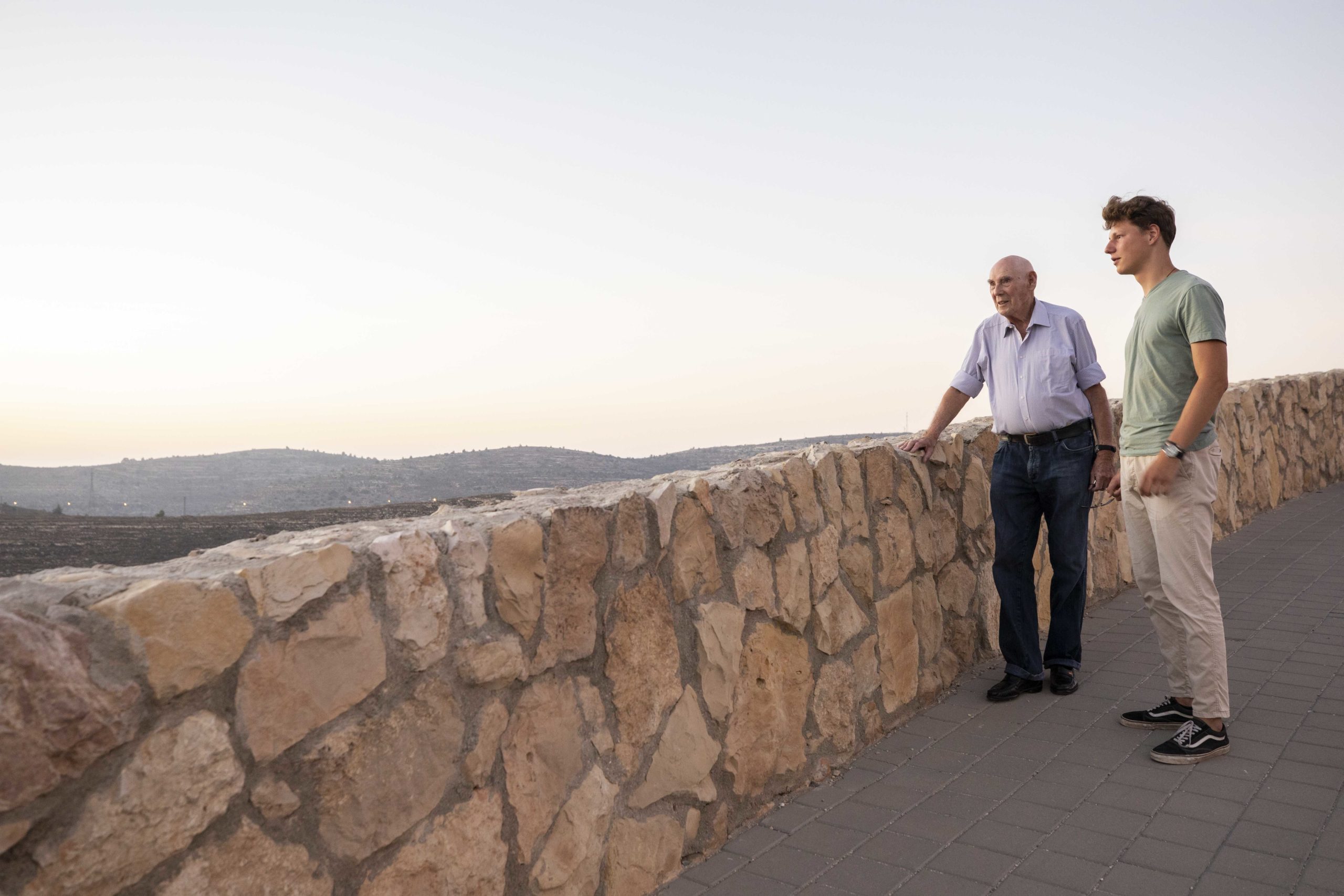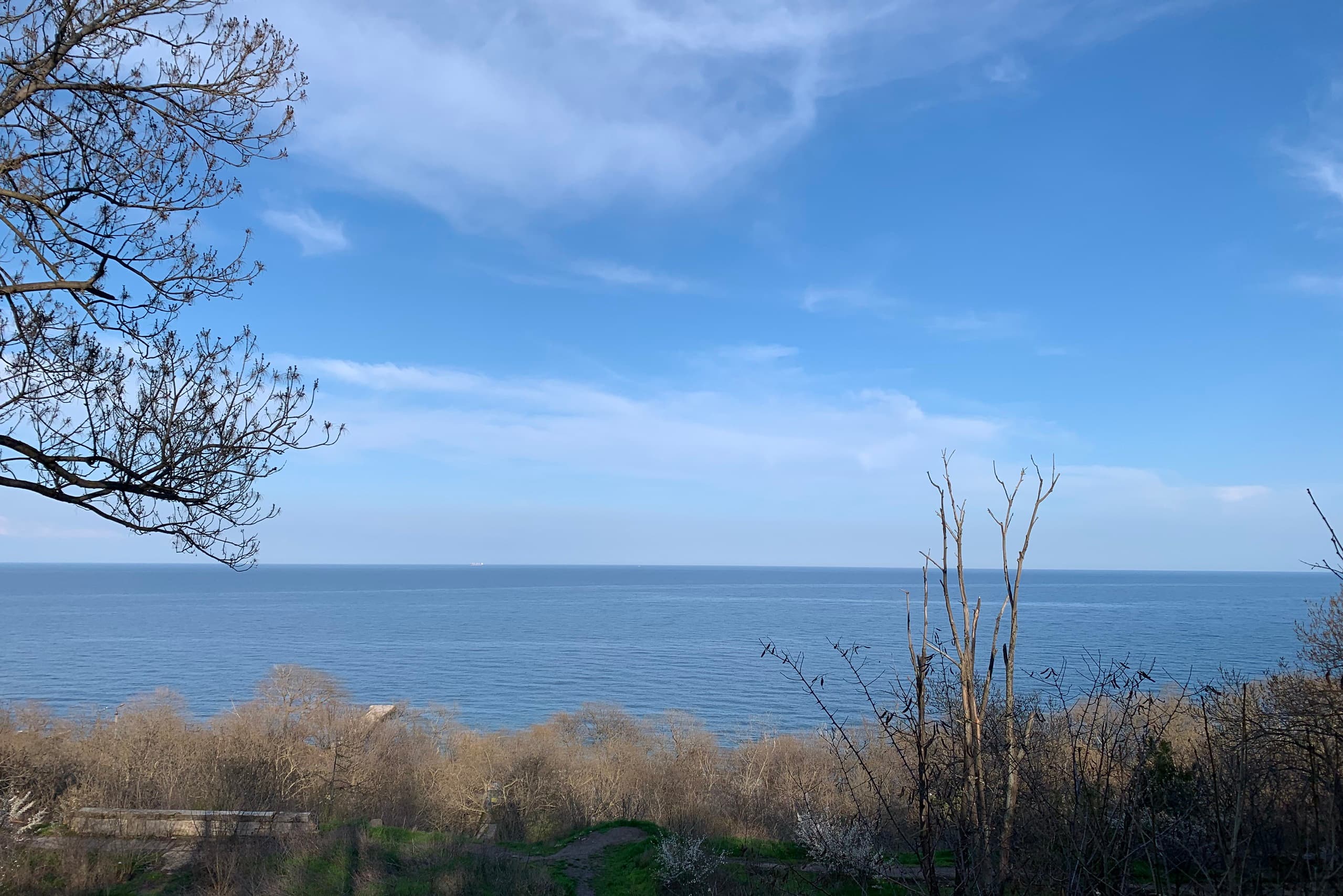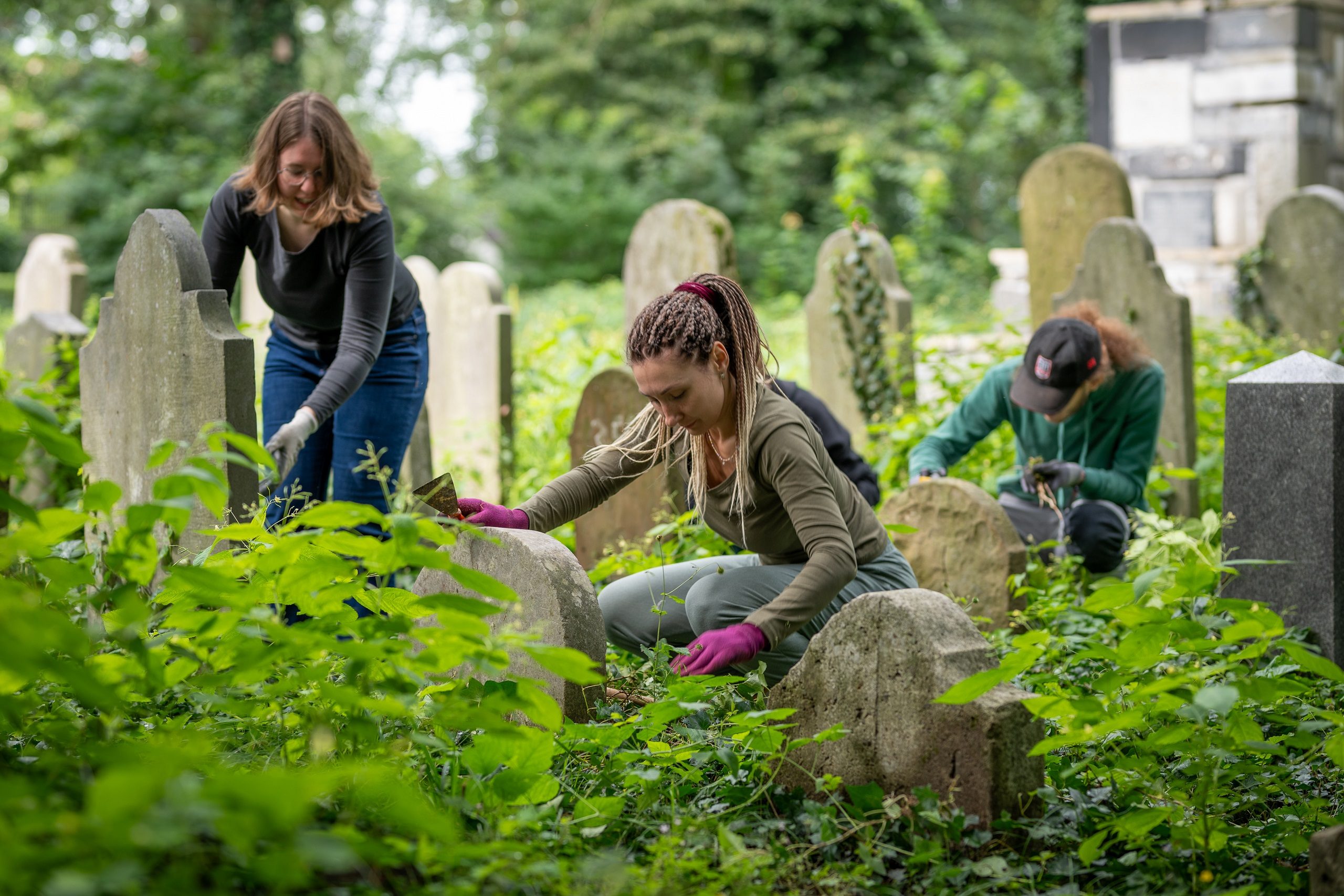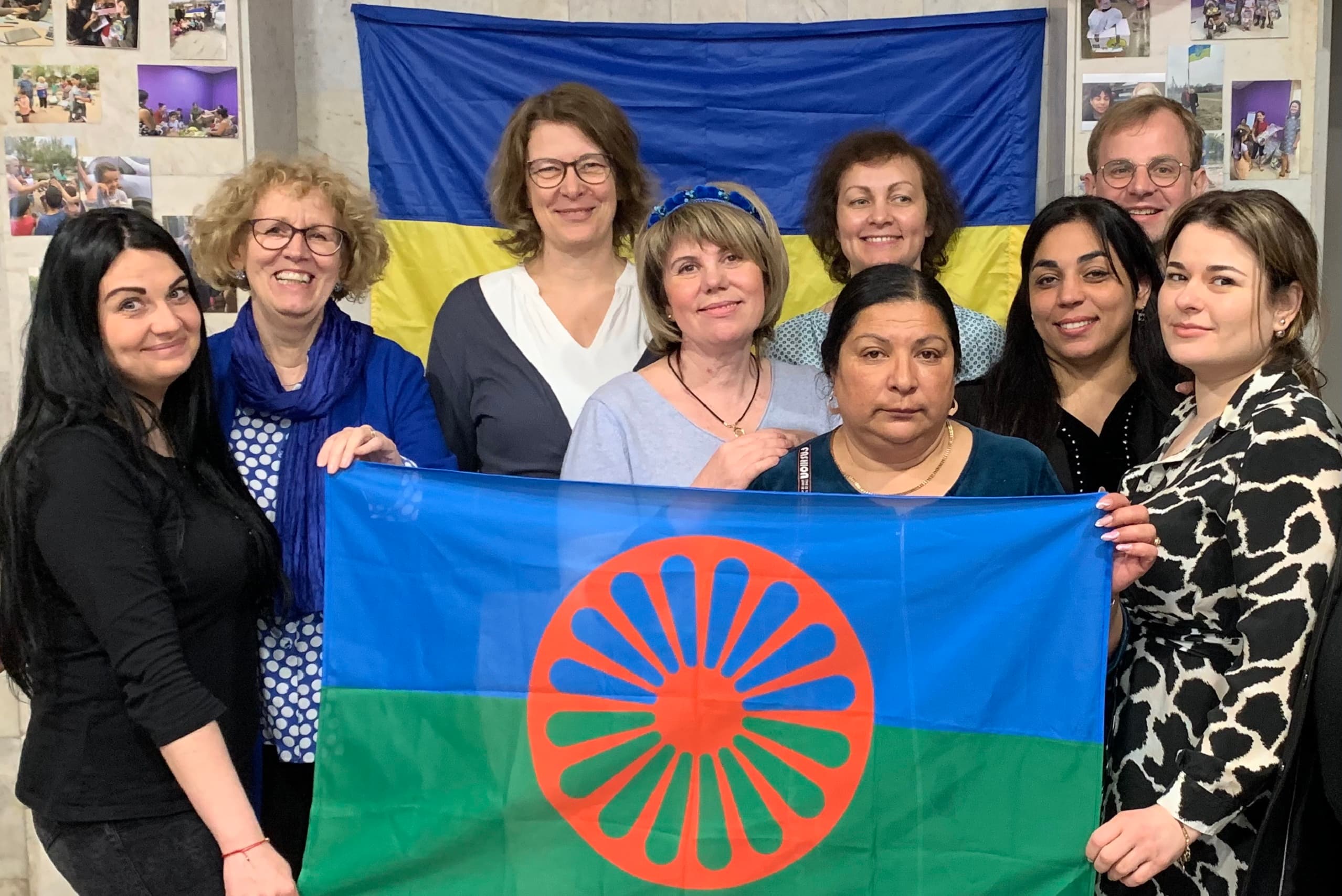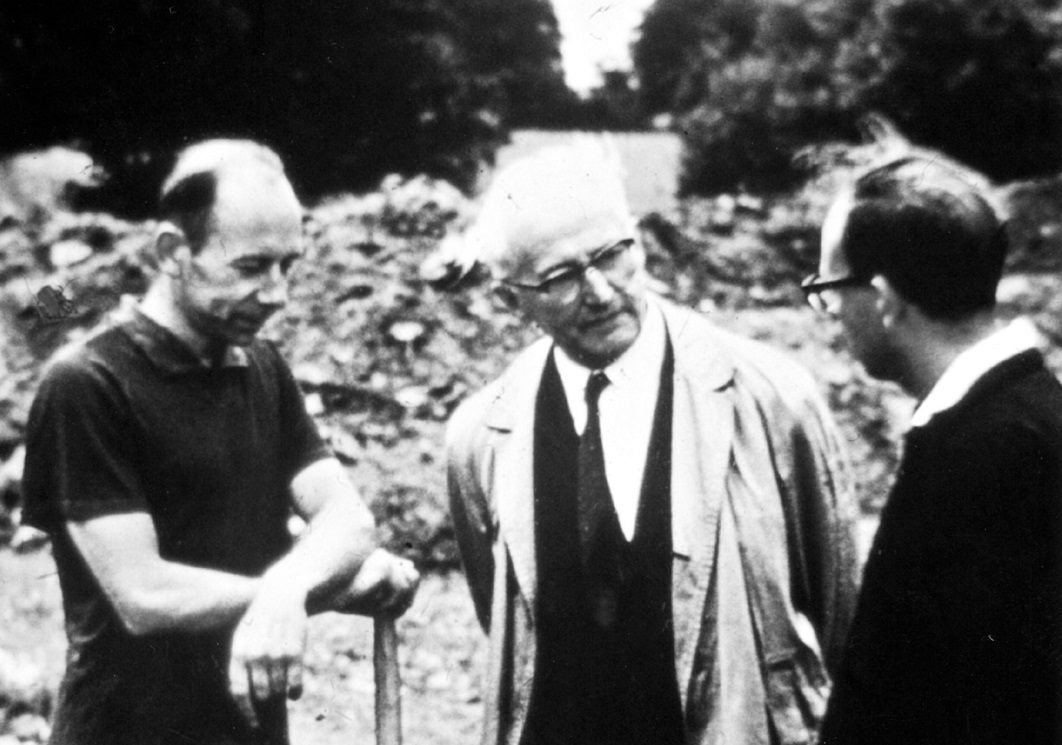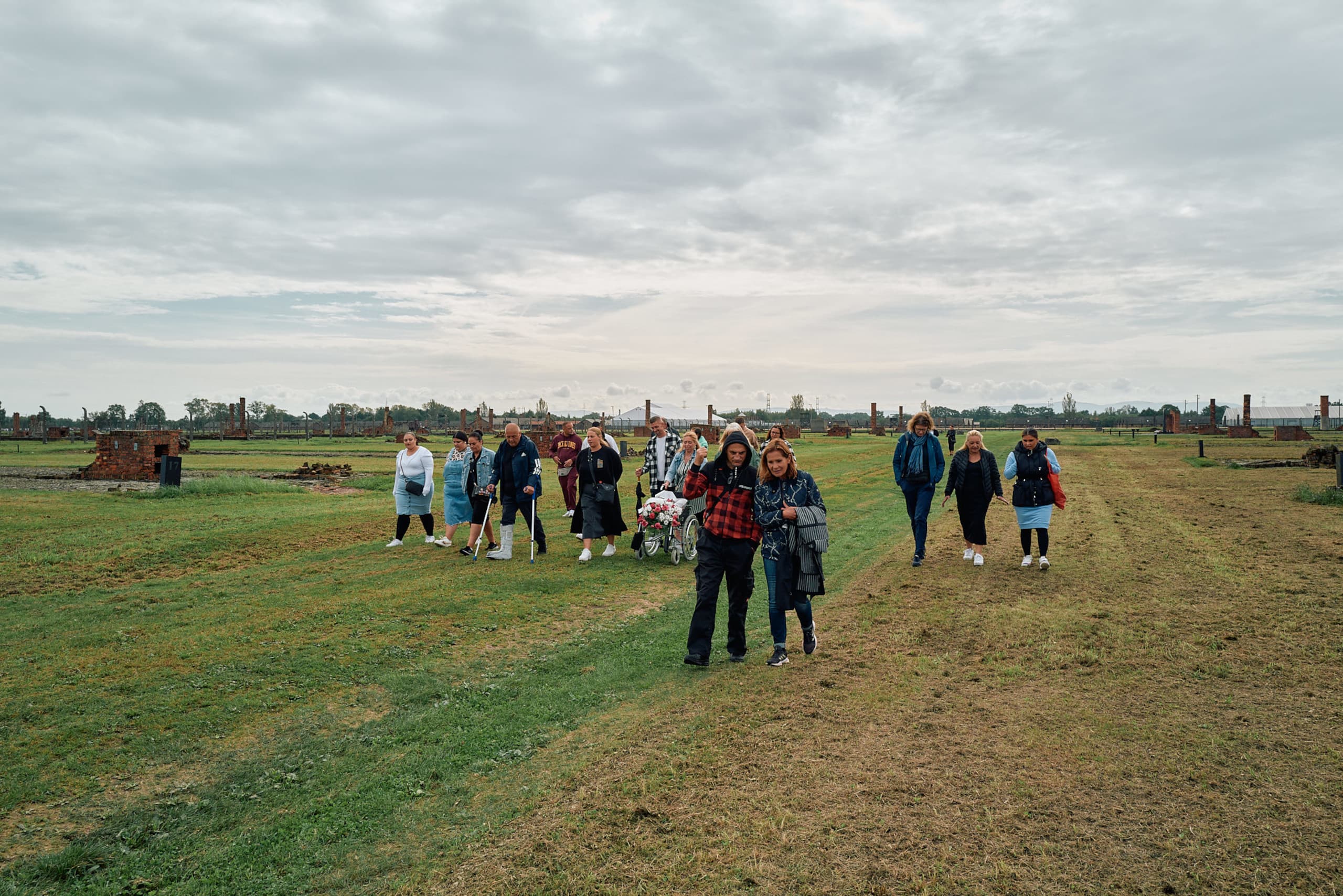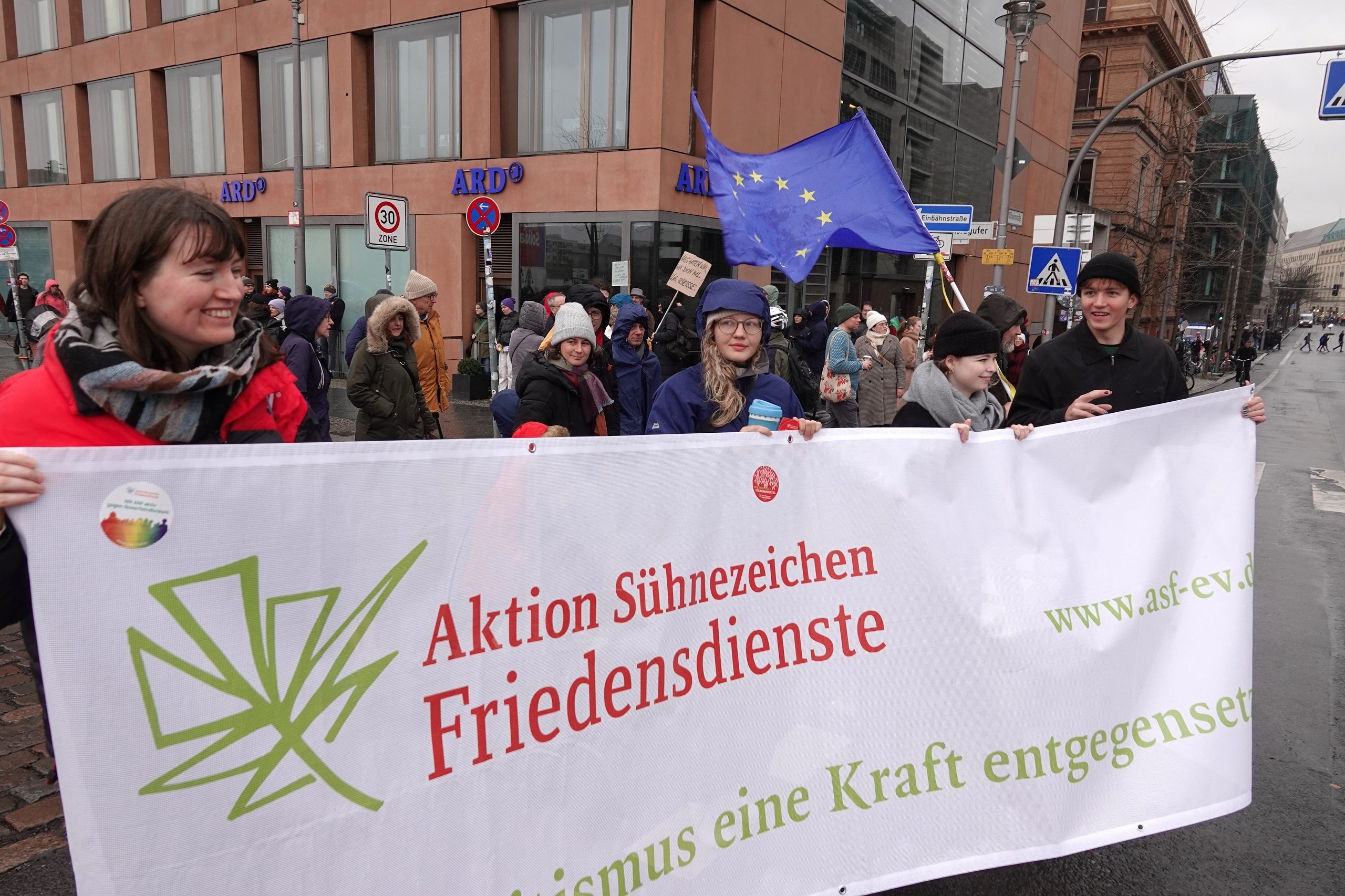History(ies) in the Migration Society
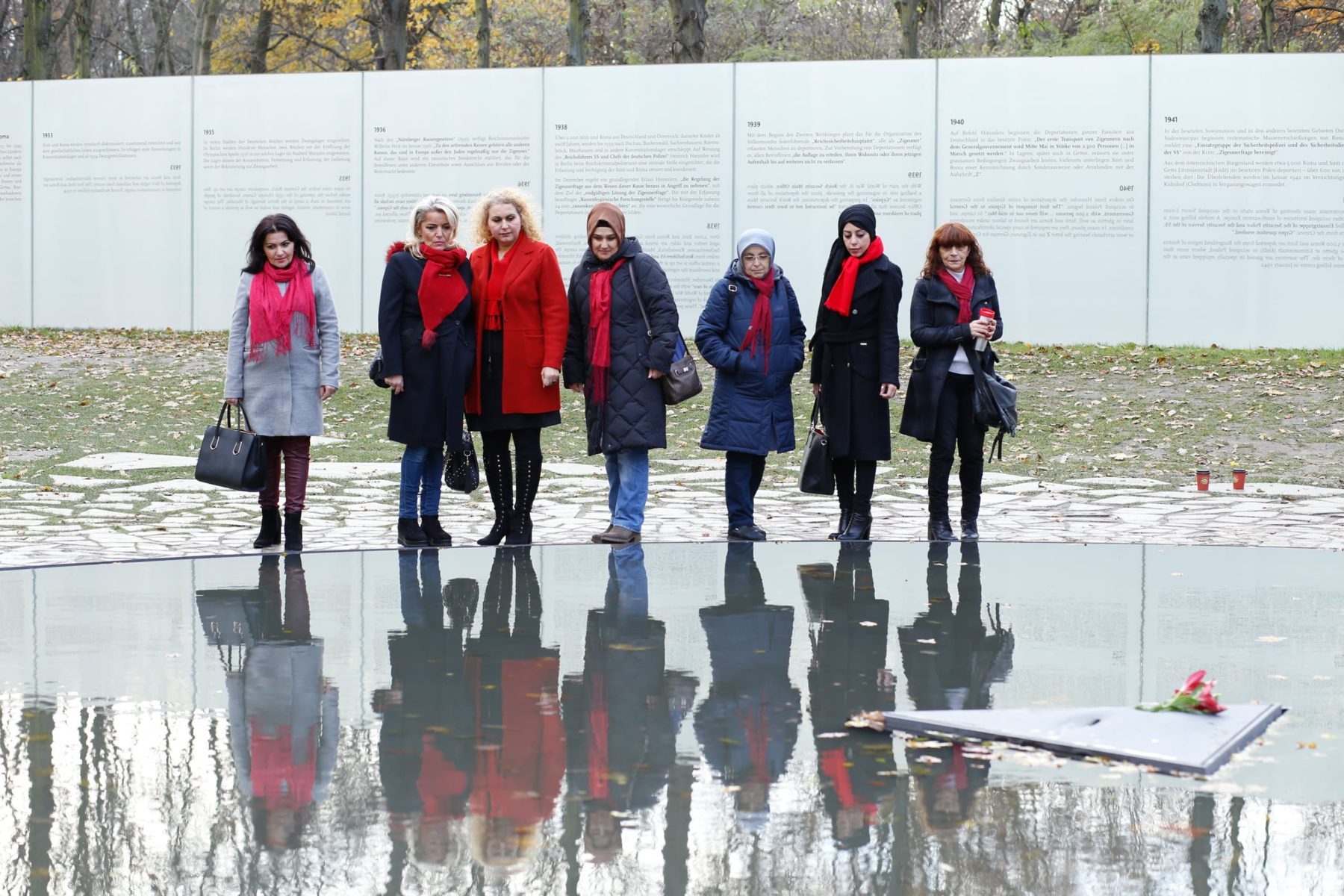
History(ies) in the migration society is multifaceted and memory discourses are expanded by the perspectives of people with immigration histories. The research area deals with the significance of National Socialist history, its continuities and consequences, and takes a critical look at anti-Semitism and racism.
On this page:
Our Projects
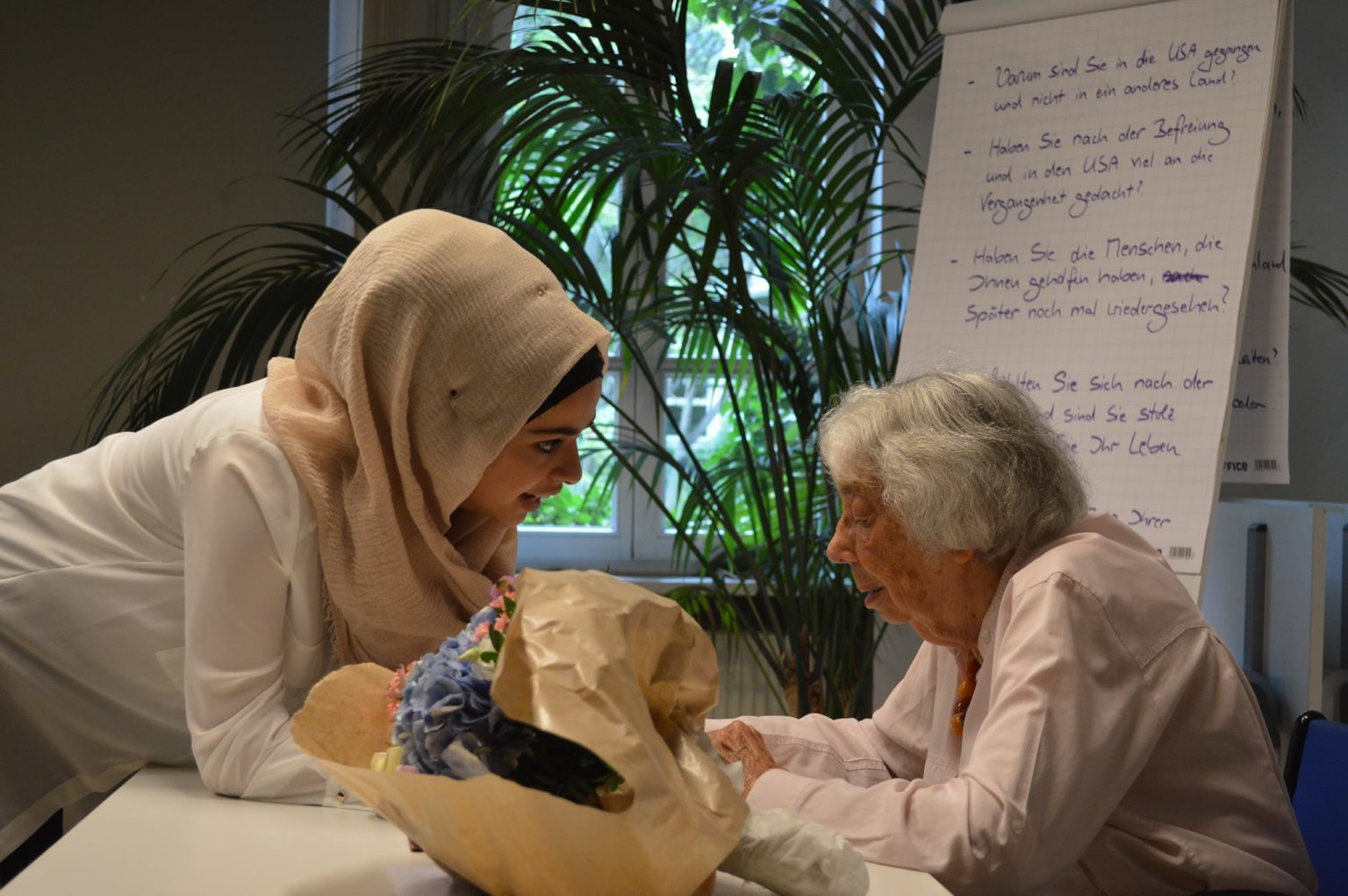
In seminar series lasting several days or weeks, participants deal with the history of National Socialism, the topic of anti-Semitism and their own biographies.
What history(s) shape the country I live in?
Knowledge of history can help us to better understand our present. Our educational programs offer people with migration biographies space and time to intensively deal with the topics of National Socialism, the Holocaust, anti-Semitism, and other forms of group-based hostility. The seminars enable participants to contribute their existing knowledge and their different perspectives. The significance of history for today’s coexistence and the strengthening of a multi-perspective culture of remembrance also play an important role. In the seminars, it is our concern to offer a protected space in which personal history can be told, but also in which one’s own thoughts and actions can be reflected upon.
Organization of the seminars
The seminar series or trips take place in cooperation with various partners throughout Germany. In the seminars, which last several weeks or days, participants acquire a sound basic knowledge of the history of National Socialism. We also visit historical sites and exhibitions and talk to contemporary witnesses. Through historical tours of the city, participants learn more about local history. This opens up new perspectives on the city in which the participants live. In dialogical learning, we exchange experiences of living together today and of our own history(s). This often includes the participants’ own experiences of discrimination, racism and powerlessness. Dealing with their own biographies as well as with the life stories of historical persons creates empathy and encourages the participants to defend themselves against inhuman behavior.
The educational programs are part of the project “Learning from history – anti-Semitism-critical, plural and digital educational programs in the migration society” („Aus Geschichte(n) lernen – antisemitismuskritische, plurale und digitale Bildungsprogramme in der Migrationsgesellschaft“). The project is funded up to and including 2023 by the Federal Government Commissioner for Jewish Life in Germany and the Fight against Anti-Semitism.
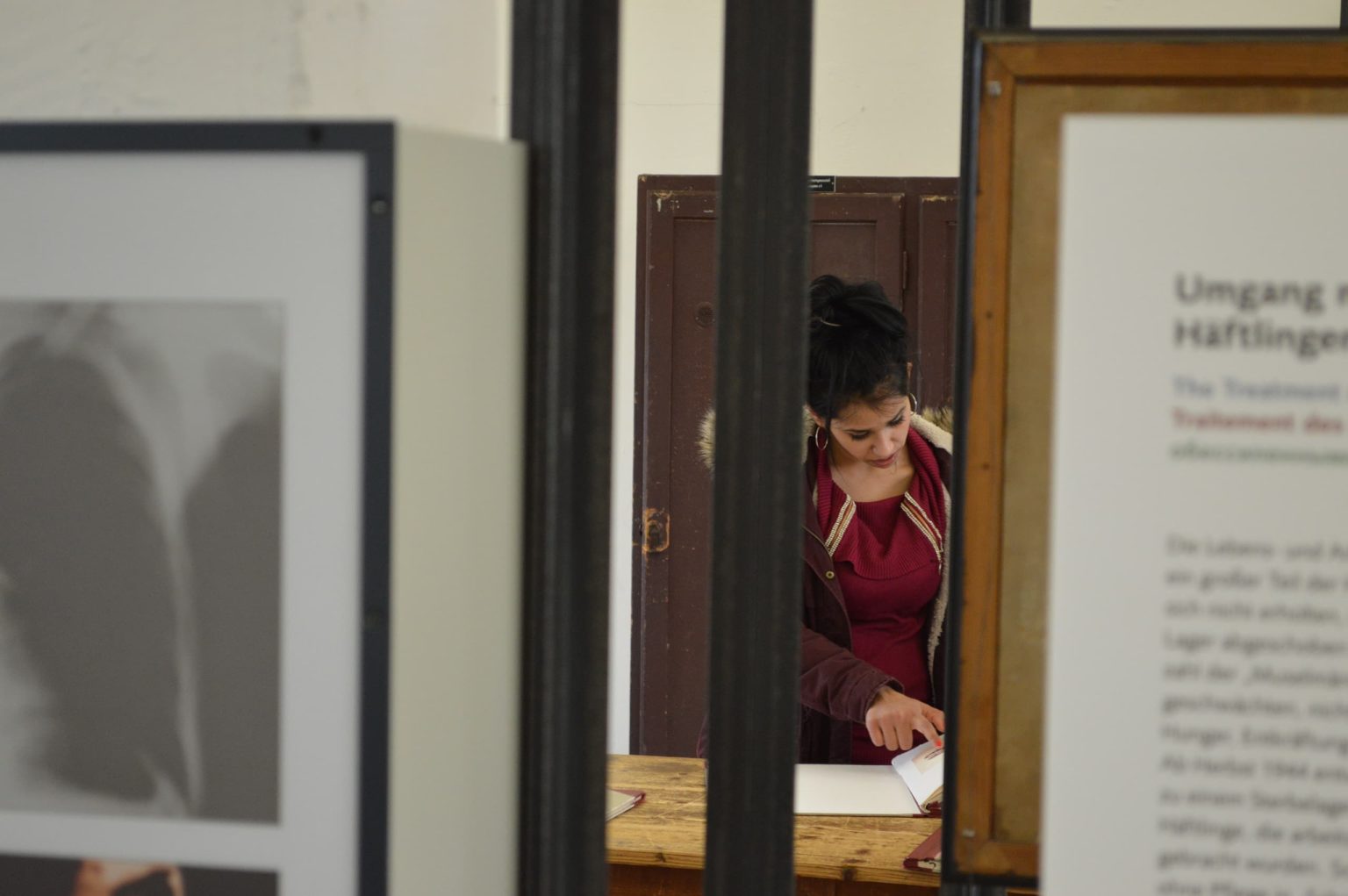
In seminar series, district mothers, Romnja and multipliers with and without migration biography deal with the history of National Socialism, anti-Semitism and racism against Sintezze*Sinti and Romnja*Roma.
Dealing with Nazi History and Current Racism
In the educational programs we deal with the genocide of the Sintezze*Sinti and Romnja*Roma of Europe and ask about consequences, breaks and continuities in our present. A look at the National Socialist crimes makes clear how rejection, exclusion and racism can lead to genocide. From 1945 on, a second persecution of Romnja*Roma and Sintezze*Sinti began and with it a period of persistent discrimination, denied recognition and protracted struggles. To this day, racism characterizes the everyday life of many members of the minority.
Historical-political educational work
In a series of seminars lasting several weeks, participants visit historical sites, exhibitions, monuments and memorials. They talk to survivors and their descendants. A special focus is on working with the biographies of the participants. In addition to the empowering experience of being able to tell one’s own story, the diverse life stories reveal the individuality within supposedly homogenous collectives. In writing workshops, the participants compose their own texts in which they deal with their perspectives on history.
From the seminar room into the urban space
From the seminar series we develop together with Romnja self-organizations and our cooperation partners various actions that have an impact on the local public. For example, readings or publications of own texts, stumbling stone walks and film screenings with discussion. The multipliers can thus set impulses that strengthen the awareness of history and today’s racism, which is directed against Sintezze*Sinti and Romnja*Roma, in the entire society.
The educational programs are part of the five-year model project “Historical-Political Learning in the Post-Migration Society: Raising Awareness of Racism against Sinti and Roma in the Past and Present” ( „Historisch-politisches Lernen in der Post-Migrationsgesellschaft: Sensibilisierung für Rassismus gegen Sinti und Roma in Geschichte und Gegenwart) (2020-2024) and are funded by the Federal Ministry for Family Affairs, Senior Citizens, Women and Youth as part of the federal program “Live Democracy!” („Demokratie leben!“).
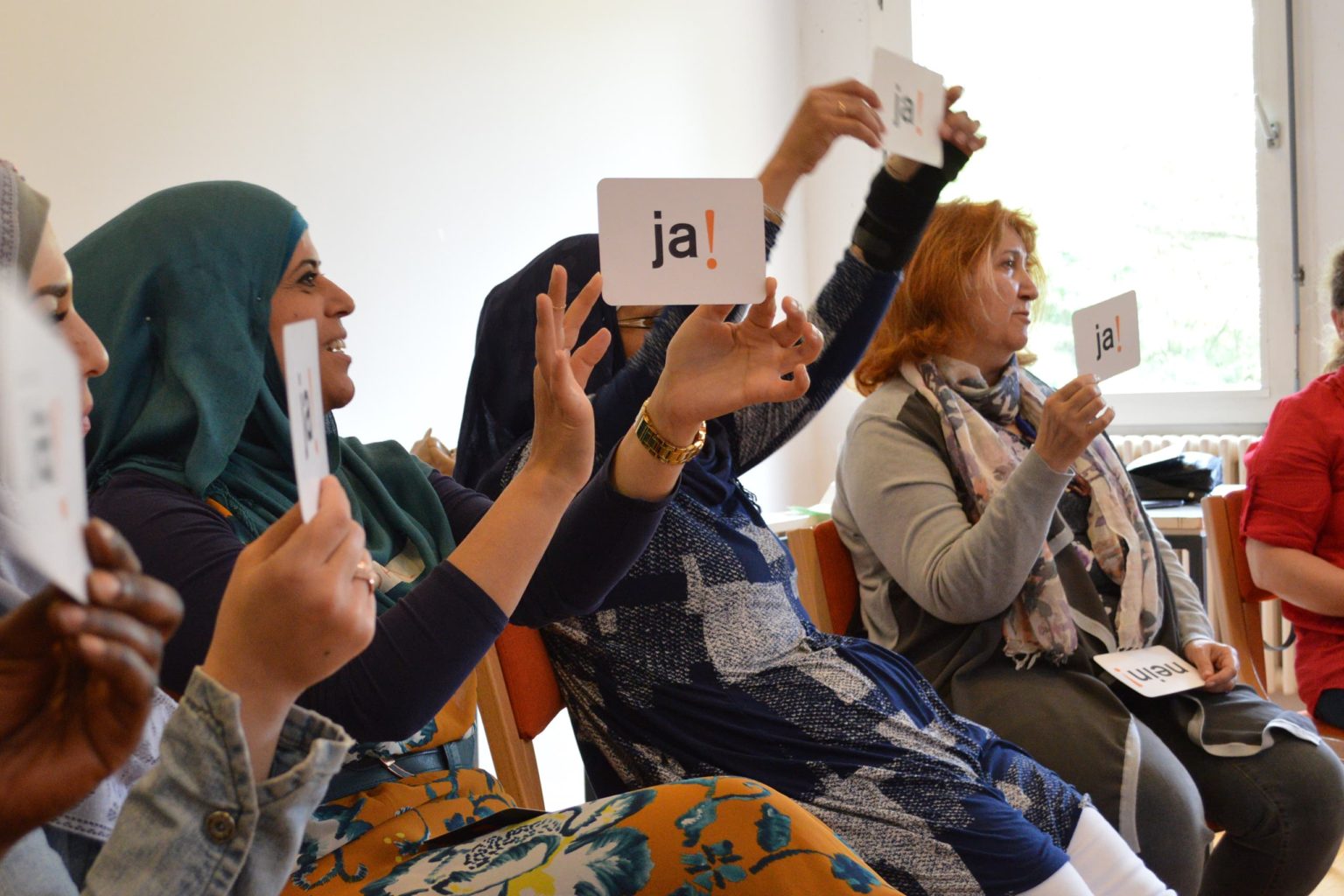
Djamila Boumekik is one of the women who, when they visit the Memorial to the Murdered Jews of Europe, are met with astonished looks from many. This is because she belongs to a group of district mothers who are outwardly predominantly recognizable as Muslim and are not expected at this place. It is often assumed that migrants have little interest in German history, especially the history of National Socialism. Our experiences are quite different.
Since 2006, we have been working in Berlin with district mothers from Neukölln and Kreuzberg in seminar programs on National Socialist history. The district mothers are women with an immigration history who accompany families in questions of upbringing and education. In the meantime, we have conducted seminar series lasting several weeks with about three hundred and fifty women.
District mothers initiated the project
The seminar series was initiated by the district mothers themselves. They approached ASF with the desire to develop joint seminars on the topic of National Socialism. This is how the cooperation project “District Mothers on the Trail of History” came about, in which ASF works together with Diakoniewerke Simeon and Stadtmitte, the providers of the training for the district mothers.
Aktion Sühnezeichen Friedensdienste, together with Master’s students from Touro College Berlin, has developed a historical-intercultural city tour on the subject of “Flight, Exile and Persecution” along Hardenbergstraße in Berlin-Charlottenburg and published it online as a website with an audio guide at www.flucht-exil-verfolgung.de.
Our city tour focuses on places related to National Socialism that are also linked to other experiences of flight and exile. For example, stumbling stones commemorate the Jewish Behar family on the corner of Kantstrasse and Fasanenstrasse. The family was murdered in Auschwitz in 1942. The Behars were Turkish Jews who came to Berlin from their native Istanbul in 1915, partly because of the Ottoman government’s anti-minority policies.
In 1921, an assassination attempt took place just one block away on the corner of Fasanenstrasse and Hardenbergstrasse: the former Ottoman interior minister and head of government Talaat Pasha was shot dead by an Armenian student. Talaat Pasha was Interior Minister of the Ottoman Empire until 1917 and in this function was one of the main perpetrators of the Armenian genocide. He was granted asylum in Berlin. While the German Reich granted Talaat Pasha asylum, the Federal Republic refused protection to the Turkish refugee Cemal Kemal Altun in 1983. During deportation proceedings, he took his own life by jumping from the 6th floor of the administrative court at Hardenbergstraße 20. Another story of flight, exile and persecution is commemorated by a plaque on Steinplatz: this is where the future mayor of Berlin, Ernst Reuter, moved into his first apartment when he returned from exile in Turkey in 1946.
These and other examples of interrelated stories are intended to make visible the diversity of memories that are visible in Berlin as a city of immigration – a diversity that does not simply consist of different, juxtaposed perspectives, but rather shows the connections and relationships.
Podcast "Confronting antisemitism and racism"
With the podcast “Kurz gefragt – Antisemitismus und Rassismus begegnen” by Aktion Sühnezeichen Friedensdienste, we offer basic knowledge on various manifestations of the phenomena of antisemitism and racism. In conversation with experts, we ask about definitions, function and impact.
Speakers of ASF: Jutta Weduwen, Managing Director and Anne Scholz, Project Coordinator.
Editing and sound: Lena Högemann
“For me, being Roma means above all strength and cohesion. I have been involved in the Roma community for over 20 years […]. The women’s meetings at the weekends with Aktion Sühnezeichen Friedensdienste give us an open space for exchange. When I tell the other women my story and hear their stories, it encourages me and gives me courage.”
